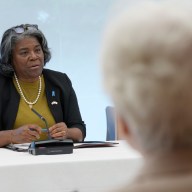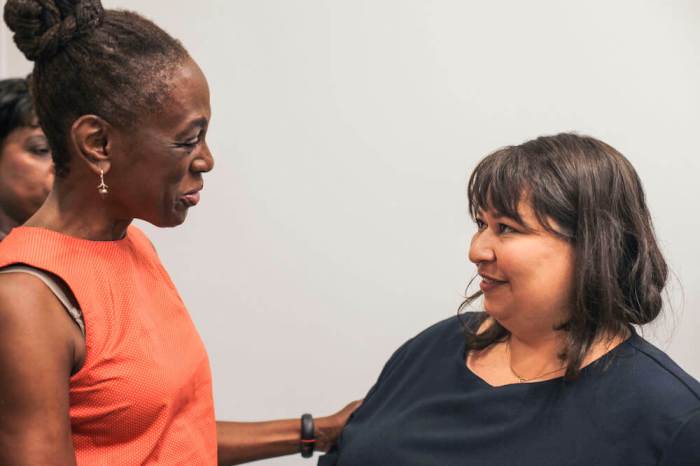The end of a life is inevitably tragic — but what if an even bigger tragedy could be avoided by hastening it?
That was the eventuality that 29-year-old Brittany Maynard chose to avoid. On Nov. 1, supported by her family and the millions around the world who learned about her choice to end her life before an aggressive brain tumor could leech it from her slowly and painfully, Maynard took a prescribed dose of lethal medication. To get that prescription, Maynard moved with her family to Oregon, one of only five states with a “Death with Dignity” law that allows for assisted suicide, in which a doctor can provide medication to end the life of a dying patient who’s deemed mentally competent. Whether the option should be available nationwide, or banned entirely, will be the subject of an Intelligence Squared U.S. debate taking place Nov. 13, with passionate advocates on both sides. One of the issue’s supporters, distinguished author and Columbia University professor of clinical psychology Andrew Solomon, has written about his mother’s assisted suicide in 1991 after a years-long battle with ovarian cancer. He calls Maynard “little short of heroic” for devoting the final months of her life to speaking about the issue — and giving it a new face. “People tend to distance themselves from the very old and sick until they themselves are very old and sick,” Solomon tells Metro. “I think having someone who is young, and beautiful and articulate who appeared to have a happy marriage and a close relationship with her parents and had all of those other things in order, and seeing this person, too, wants this option, forced people to think, ‘Oh, this isn’t just a debate that has nothing to do with me — this is a debate that could be relevant to me at a moment’s notice.” Maynard also acknowledged how privileged her family was to be able to pick up their lives and move to another state, and Solomon emphasized that wealth and status should not be the things that determine access to this end-of-life option. What does it mean to have dignity in death?
As far as the right to die as a way of seeking to ensure dignity in a person’s final moments, Solomon concedes that what constitutes a dignified death can vary widely — but that doesn’t mean there’s a right interpretation. “There are some people who feel it’s perfectly fine with them to die at the tail end of palliative care, where they’re largely sedated and can’t really function and are hooked up to a lot of machinery and so on,” he says. “Certainly in my own case, it was terribly important to my mother, who was a self-possessed woman, to be able to die while she could still speak the last words she had, or she could still understand what was happening to her, to be able to do it when she was not sedated beyond the point at which her personality became unrecognizable. I think that there was a strong sense that she wanted to leave this stage as the same person she had been for her time on it.” Solomon’s mother’s decision was influenced by having watched one of her best friends die of cancer “in pain that was not well-controlled and in a state of relative incoherence. My mother just said, ‘The person I saw in that hospital bed was not Sandy. She was not the Sandy I had known and loved for many years, and I don’t want you to remember me like that and I don’t want to go through that experience.’” Who should have access to assisted suicide?
Currently, the law requires that a patient be diagnosed with a terminal illness to have the option of assisted suicide. Though Solomon supports strict guidelines on who that choice is made available to, that standard doesn’t include everyone whose quality of life no longer satisfies them. “I think it’s important there be many precautions put into place so that people don’t commit suicide because they have conditions that are reversible, including some element of depression, which can often be a response to diagnosis of a catastrophic illness,” he says. “Having said that, I’ve seen people who have ALS or even people who have Alzheimer’s who are at a point at which they no longer wish to go on, and the question of whether people who have not been given the specific kind of amulet of six months to live, whether those people should have access to the right to die is complicated and nuanced simply because it’s more open to reinterpretation and misuse.” He encouraged those around the dying person to show their love by being supportive in whatever way they need.
“I think the respectful thing is to try as deeply as you can to understand the wishes of the dying person, to understand the ramifications of those wishes, to sort out whether those wishes are crazy, irrational or coming out of severe depression, or coming out of a carefully thought-through understanding of the value of life.” The physicians’ side
Solomon has concerns about palliative care specialists being “often quite agenda-driven,” but says that overall, there is more willingness by doctors to express the sympathy they feel for a dying person’s wishes. None of them tried to convince Solomon’s family that his mother should endure the final stages of cancer, but any loss of life affects them, too. “I still think it’s an uphill battle. Medical education is so focused on preserving life, and I think it’s traumatic for doctors to have not only the loss of someone they’ve developed a relationship to but also the acknowledgment of the limitations of medical science. That in some sense, everyone who makes this choice seems to point a light of failure onto medicine, and of course medicine, like all other disciplines, has its great successes — and places where not everything can be accomplished,” he says. Legalize Assisted Suicide
Nov. 13, 6:45 p.m.
Kaufman Center
129 W. 67th St.
$12-$40,IntelligenceSquaredUS.org


















